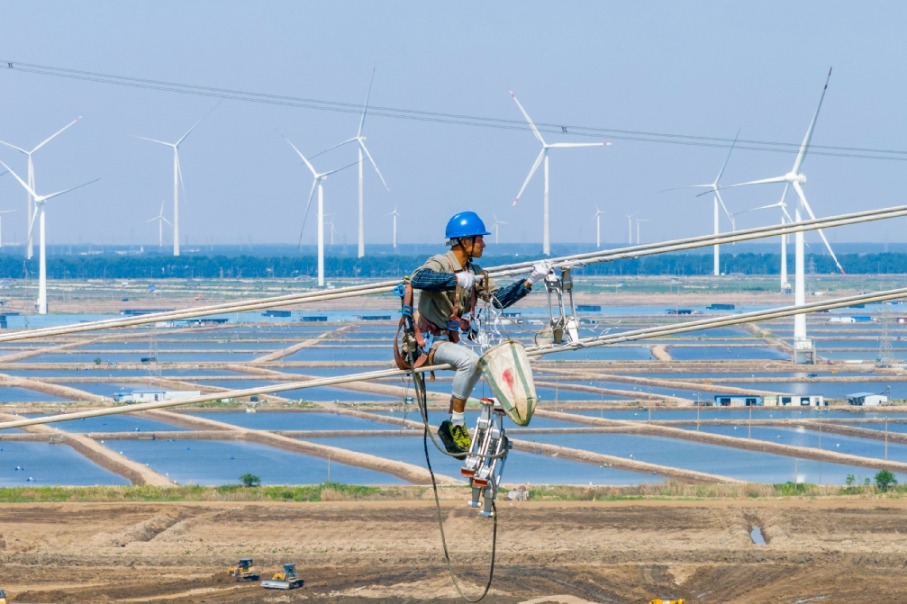Dangerously blinded by science

Internet has played a big part in blurring the line between valuable information and crackpot conspiracy theories
In a recent poll of Nobel Prize winners - some of the world's top academic minds - a large majority agreed with the proposition that political polarization and the rise of populism represent major threats to scientific progress.
The survey was timed to coincide with a World Academic Forum in London this month.
"Today, facts seem to be questioned by many people who prefer to believe rumors rather than well-established scientific facts," said French chemist and Nobel laureate Jean-Pierre Sauvage, one of the participants.
The poll reflected growing concern that populist campaigns against "experts" and "elites" are not only fostering public mistrust but also threatening funding for vital scientific research.

Forty European academic institutions have meanwhile just announced they are to launch a major investigation into whether public trust in experts has collapsed in the so-called "post-truth" era.
Linked to these concerns is the perception that the welter of information - true and false - now available on the internet is generating more heat than light around a range of scientific issues.
The trend toward seeking information online has undermined some traditional systems of quality control, according to a paper by Cambridge professor Baroness O'Neill, who is co-chairing the European academic study.
Some academics have singled out specific politicians for fostering the assault on expertise.
During Britain's 2016 referendum campaign on membership of the European Union, leading Brexit campaigner Michael Gove was widely criticized for his comment that "the people in this country have had enough of experts".
On issues such as climate change, much of the US public embraces the denialism of President Donald Trump rather than accept overwhelming scientific evidence that global warming is, at least in part, man-made.
Of course, scientists are not infallible. For decades, official dietary guidance in Western societies was based on avoiding fats and gorging carbohydrates. The up-to-date advice is almost diametrically opposite.

In another much-targeted field of expertise - economics - most of its practitioners entirely failed to predict the global economic crisis of 2008.
These and similar examples suggest that a healthy and informed skepticism should be the order of the day. Experts may do their best but they do not always get it right.
The problem is that the internet age has exaggerated a tendency among those who instinctively reject the received wisdom of "experts" to accept the alternatives offered by cranks, fraudsters and conspiracy theorists.
The online echo chamber magnifies oddball theories that have no scientific credibility but which nevertheless appeal to the prejudices of those who believe they are the victims of a vast and shadowy international conspiracy.
Hence, many believe not only that manmade climate change is a hoax but also that the 1969 moon landing was faked and that almost anyone but al-Qaida blew up New York's Twin Towers on Sept 11, 2001. Anything that reflects a more fact-based consensus is condemned as "fake news".
The populist backlash against "experts" is finally prompting a response from the experts themselves. Some concede that it is time for academics to come out of their ivory towers and spend more time explaining the value of their work to the lay people who are ultimately paying for it through their taxes.
At a US conference this summer organized by Times Higher Education, Ceri Thomas, communications director at Britain's Oxford University, said the freedom of academics to operate depended on having broad public support. "The gulf in understanding between us and a big chunk of the world around us feels dangerously wide at the moment," he warned.
Those tempted to dismiss expertise out of hand, and the populist politicians who exploit their gullibility, might reflect that most of the benefits of modern society have come through the painstaking research of generations of experts, scientists and academics. And that includes the internet, by the way.
The author is a senior editorial consultant for China Daily. Contact the writer at harveymorris@gmail.com.
(China Daily European Weekly 09/15/2017 page11)
Today's Top News
- Xi urges villagers in Xizang to uphold ethnic solidarity
- Digital tax sparks breakdown in US-Canada trade talks
- Expert debunks Lai's 'four elements' argument for Taiwan's so-called statehood
- China opposes any tariff deal made at its expense: commerce ministry
- Nepal's hydropower a climate change solution
- UN Charter still guiding compass of humankind






























